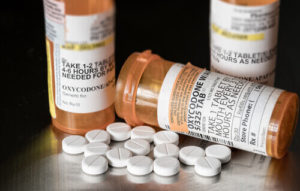Opioid Executive Sentenced to Over Five Years in Prison for Role in Healthcare Fraud Scheme

Insys Therapeutics, an opioid manufacturer whose main product is Subsys, a spray from of fentanyl that is 100 times stronger than morphine and cost tens of thousands a month, is in the news again. The company and its former CEO, John Kapoor, have been facing a mountain of legal issues in the past three years. Last week, in a decision that most of our readers agree with, Kapoor was sentenced to 66 months in prison. Kapoor, along with four other Insys managers, are the first opioid executives convicted of a criminal racketeering conspiracy.
The five executives were convicted for their part in defrauding Medicare and private insurance carriers. From May 2012 to December 2015, the defendants bribed doctors and other medical professionals to prescribe Subsys, an extremely addictive fentanyl spray designed for cancer patients who have developed a resistance to around-the-clock opioid therapies. The executives paid kickbacks to boost the sale of Subsys. The executives also ran a phony call-center to defraud insurance companies into paying for the expensive drug.
The wrongdoing mostly stems from a “speaker’s program” that Insys operated from 2012 to 2015, purportedly to increase awareness of its brand, but was allegedly used as a mechanism of bribing doctors to prescribe Subsys to more patients, in higher dosages. In one example, a New Hampshire doctor who prescribe Subsys zero times in the year prior to joining the speaker’s program, prescribed it 672 times the following year. That doctor received $44,000 in payments from the program.
Other executives were also sentenced to prison time, including Alec Burlakoff, the company’s former head of sales (26-month sentence), and Michael Babich, another former CEO (24-month sentence).
Kapoor was also accused of violations of the anti-kickback statute, a civil law that prohibits medical providers from paying or receiving kickbacks, remuneration, or anything of value in exchange for referrals of patients who will receive treatment paid for by government healthcare programs, such as Medicare and Medicaid. The law is designed to keep medical treatment decisions free from the influence of potential monetary gain. Violations of the law can also be violations of the False Claims Act, which allows private citizens to report on fraud against the government and share in the recovered amount.
Last summer, Insys, in its corporate capacity, paid $225 million to settle related allegations. $195 million of $225 million was paid to settle allegations that the company violated the false claims act, $28 million represented asset forfeiture, and the final $2 million resulted from a fine. The scheme was brought to light by whistleblowers, former employees of Insys, who filed five, separate False Claims Act lawsuits. The United State intervened in all five in April 2018 and the whistleblowers can share in $195 million of the recovery.
The cases were brought by whistleblowers Maria Guzman, Torgny Andersson, Christopher Connors, all former Insys Sales Professionals, Melina Spalter, a former Professional Pain Specialist at Insys, and Sara Lueken and Allison Erickson, both former employees of Prime Therapeutics, a company that processed Medicare Part D claims on behalf of Insys.
In the past 20 years, over 400,000 Americans have died from overdoses involving opioids. This trend of lawsuits against opioid companies and their executives continues in response to America’s addiction crises and without insiders like these whistleblowers, this scheme would be near impossible for the government to detect. With healthcare financing being so complex, and the inside view is almost essential to detect with something amiss. Vigilant eyes of doctors, nurses, sales representatives, billing administrators, and other healthcare professionals are essential to keeping the system honest and sustainable.
Read More:
- Anti-Kickback Statute and Stark Law
- False Claims Act
- Fraud against Private Insurers
- SEC Whistleblower Program
- Founder and Owner of Pharmaceutical Company Insys Arrested and Charged with Racketeering
- Question of the Week — Should the CEO Be Held Accountable?: Lessons from the Insys verdict.
Tagged in: Anti-Kickback and Stark, Criminal Proceedings, FCA Federal, Healthcare Fraud, Importance of Whistleblowers, Medicaid, Medicare, SEC Whistleblower Reward Program, Whistleblower Case, Whistleblower Rewards,